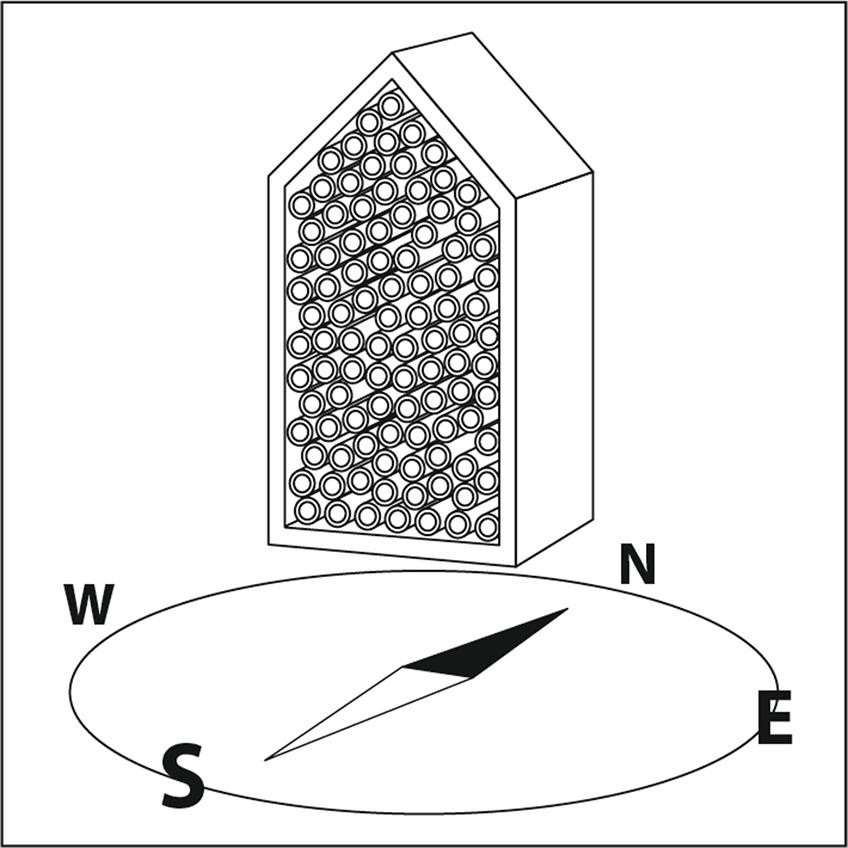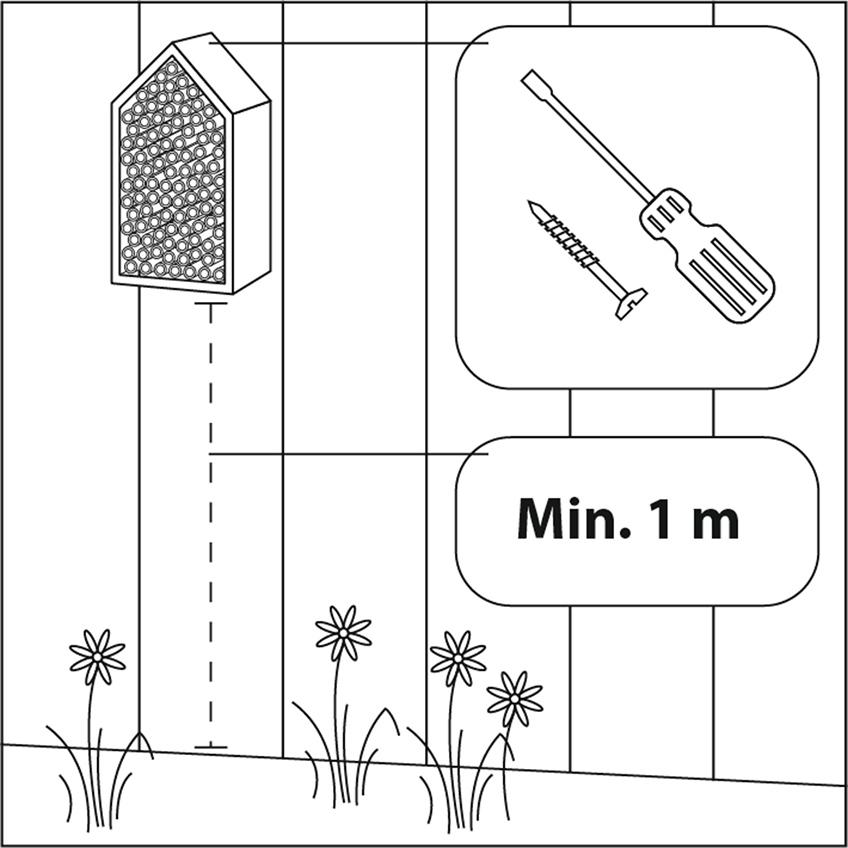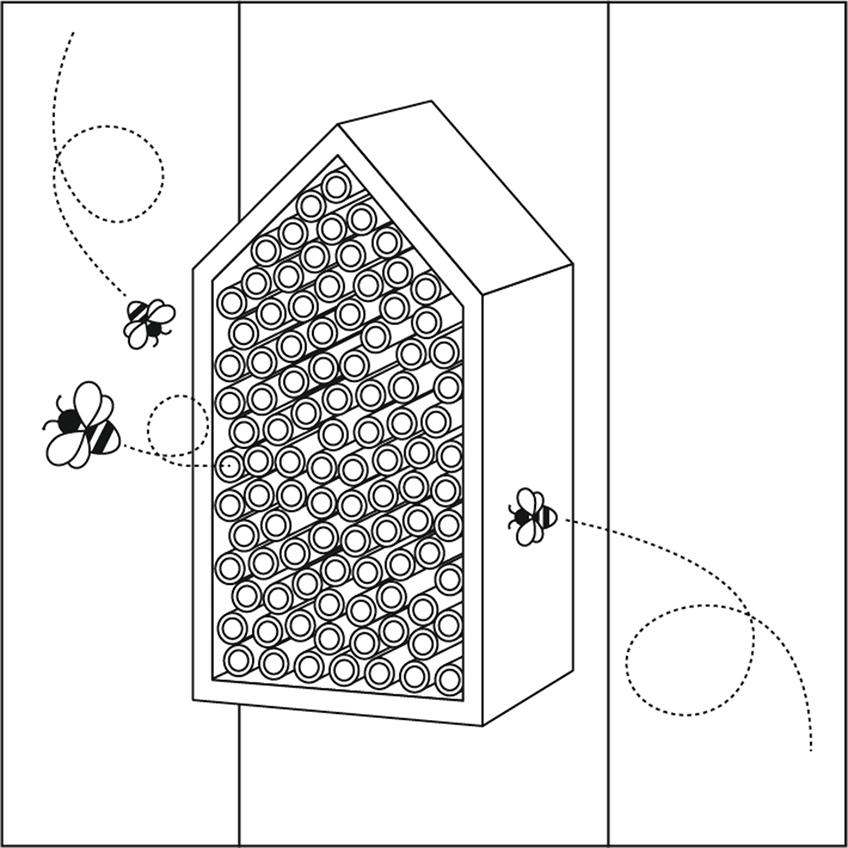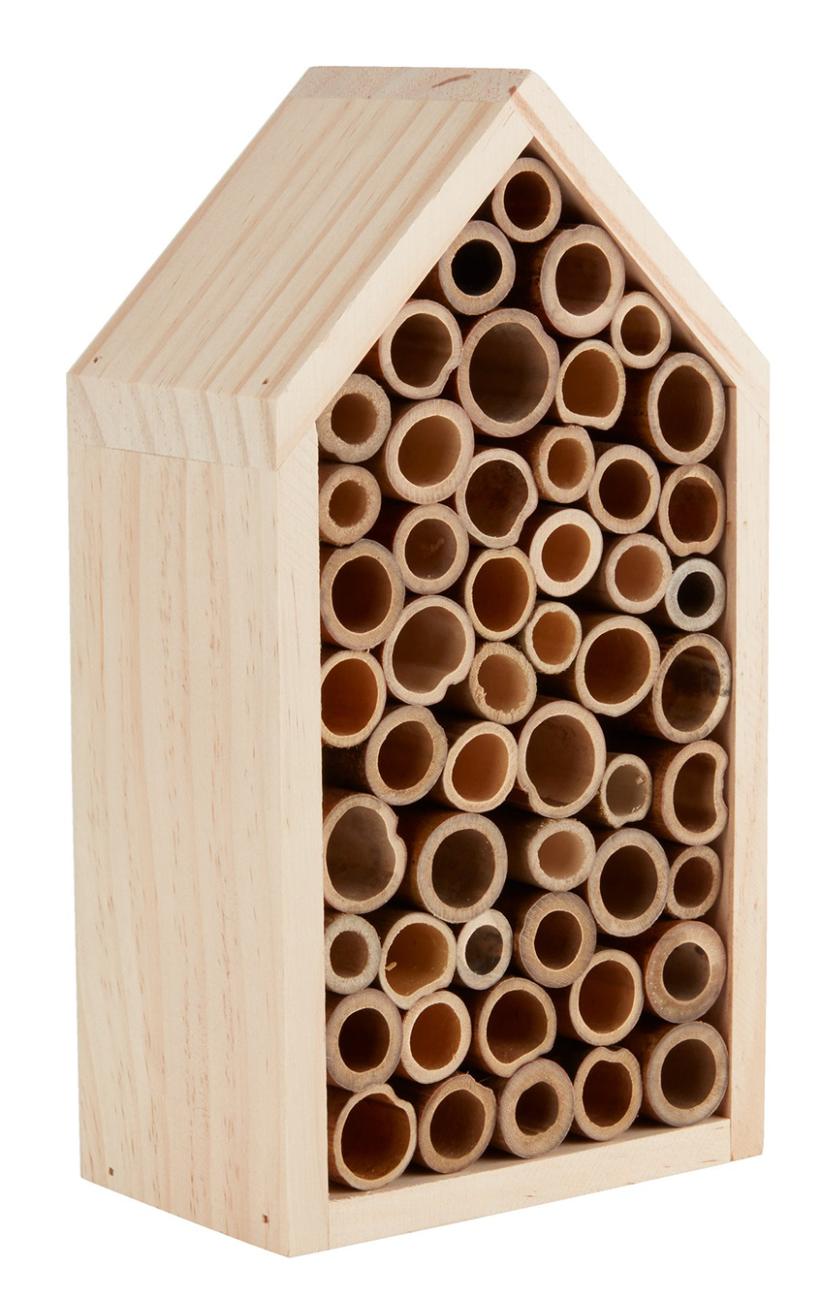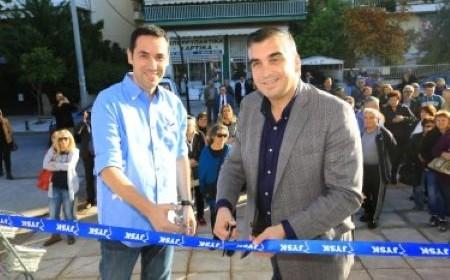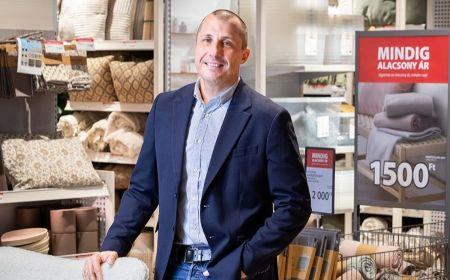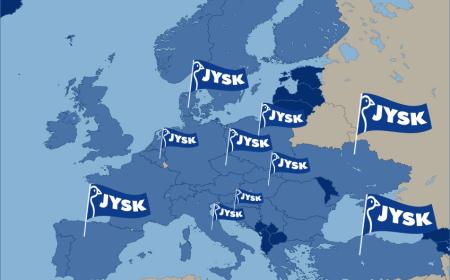A safe home for wild bees
Date:
Author: Laura Roesgaard, Sustainability Communications Consultant , JYSK
Category: Sustainability , Product Assortment
A cooperation with a student resulted in concrete changes to JYSK’s insect hotel. All for the benefit of the endangered, wild bee.
A group of German students from Flensburg University of Applied Sciences were given the task of submitting their thoughts on how JYSK could make a selected product more sustainable.
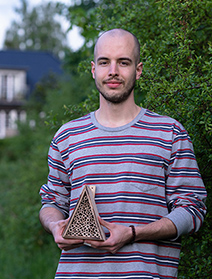
One of these students was Johannes Rapp, who is studying Intermedia & Marketing.
"I liked the idea of working with a company, and JYSK has many interesting aspects in relation to sustainability," says Johannes.
The students had to choose the product themselves, and Johannes went exploring in JYSK's webshop, where he came across an insect hotel. That was the starting point of a detailed analysis of JYSK's product and other insect hotels on the market.
Bamboo is best
“Typically, insect hotels contain several different elements because many believe that it can then house several different species. But this is rarely the case and in worst case, you can lure the bee's enemies to the house – such as earwigs, which feed on the wild bee's breed," says Johannes.
Furthermore, Johannes explains that it is primarily the wild bees that lack a home. And if you want to create a good home for them, bamboo is the ideal choice. Carefully drilled bamboo, that is, as the bees can otherwise tear themselves on splinters and damage their wings.
Did you know...
that while honeybees live in herds in beehives, wild bees most often live in solitude? And that bamboo pipes make an ideal home?
Small change, large impact
Both Johannes and JYSK have been very satisfied with the collaboration, which resulted in very concrete amendments.
“Johannes had several inputs, including how important it is that the bamboo pipes are drilled very carefully to avoid splintering. As a result, we approached our supplier, and the insect hotel we sell today consists only of carefully drilled bamboo,” says Stine Bruland, who is Category Buyer, Garden.
Johannes is pleased that JYSK has implemented some of the results from his analysis.
“It is positive that a company spends energy on changes even on a small scale – in this case a single product. Hopefully, this means that more wild bees will find a home. And that is of great importance for the conservation of biodiversity and pollination,” says Johannes.



